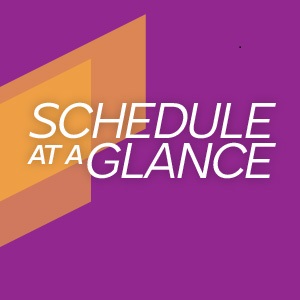Poster Session
Pain Syndromes, Fibromyalgia, and Regional Musculoskeletal Disorders
Poster Session B
Session: (1221–1247) Pain in Rheumatic Disease Including Fibromyalgia Poster
1236: Vestibulocortical Stimulation via Caloric Irrigation in Nociplastic Disease: Therapeutic Effects on Pain, Autonomic Functioning & Quality of Life Measures
Monday, October 27, 2025
10:30 AM - 12:30 PM Central Time
Location: Hall F1
- MK
Michael Kaplan, MD
Icahn School of Medicine at Mount Sinai
New York, NY, United StatesDisclosure information not submitted.
Abstract Poster Presenter(s)
Background/Purpose: Fibromyalgia (FM) and myalgic encephalomyelitis/chronic fatigue syndrome (ME/CFS) are prototypical nociplastic disorders marked by centralized pain & fatigue, respectively. Nociplastic symptoms — such as fatigue, psychological distress & dysautonomia — commonly complicate rheumatologic diseases and remain difficult to treat, thus highlighting the need for safe, effective & affordable therapies. Vestibulocortical stimulation (VCS) via caloric irrigation is a non-invasive neuromodulation technique that has demonstrated rapid analgesic effects in treatment-resistant nociplastic pain (Figure 1).1 This study aimed to replicate recent findings of VCS-induced analgesia in FM2 and assess its broader impact on quality of life to inform the design of randomized placebo-controlled trials.
Methods: We conducted a non-randomized open-label effectiveness trial in 39 patients with nociplastic pain & fatigue (mean age = 40.2; 87% female). Twenty-three patients met criteria for ME/CFS (2015 IOM criteria) and 16 met criteria for FM (2011 ACR criteria) +/- ME/CFS. Each participant completed validated electronic patient-reported outcomes at baseline, prior to receiving a single treatment of unilateral right-ear cold-water (4°C) irrigation at 1-2 cc/second. Pain & quality of life measures were reassessed at post-intervention 30 minutes, 1 day, 1 week, 2 weeks & 4 weeks.
Results: Regarding pain, 27 of 39 participants reported significant baseline pain intensity (≥4/10). At 30 minutes post-VCS, it significantly decreased (t(26) = -3.46, p = 0.002; Figure 2A) with 30% reporting ≥30% relief and 22% reporting ≥50% relief. At 24 hours post-VCS, 41% achieved ≥30% pain reduction and 37% reported ≥50% improvement (Figure 2B), with significant reductions also found in pain intensity (t(35) = -4.36, p < 0.001) and pain interference (t(35) = -3.67, p < 0.001; Figure 2C). Beyond 24 hours, no significant changes were observed as the study was underpowered to detect effects beyond that timeframe.
Subjective well-being scores increased significantly post-VCS (t(37) = 3.89, p < 0.001; Figure 3A) and autonomic symptom burden (COMPASS-31) decreased over time (F(3,60) = 7.998, p < 0.001; Figure 3B). PROMIS-29 domains showed sustained improvements in anxiety & social role participation at 1, 2, and 4 weeks post-intervention. Fatigue levels remained unchanged and no major adverse events occurred. VCS was safe & well tolerated, with 86.1% of participants reporting a willingness to have the procedure repeated if it reduced pain by half for one week.
Conclusion: These findings provide further open-label trial evidence that VCS offers meaningful relief in nociplastic pain. This study is also the first to show proof-of-concept improvements in autonomic symptoms & quality of life following VCS in nociplastic disease. Large randomized placebo-controlled trials are needed to validate & further advance this simple, bedside procedure into therapeutic standard of care for millions of patients globally suffering with refractory rheumatologic & nociplastic disease.
REFERENCES
Ngô T & Kaplan M. Australian Association of Musculoskeletal Medicine (AAMM) conference, 2023.
Kaplan M et. al. Pain Med, 2024.

